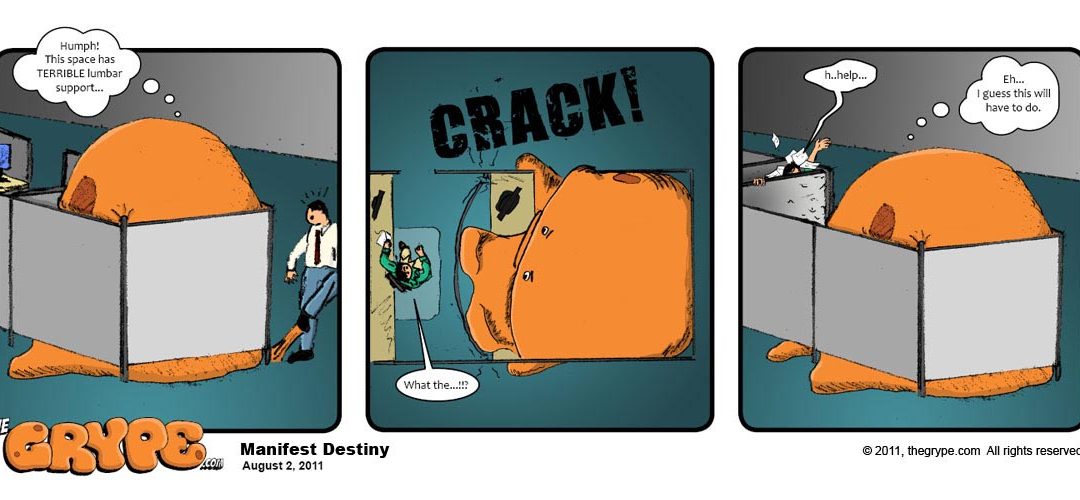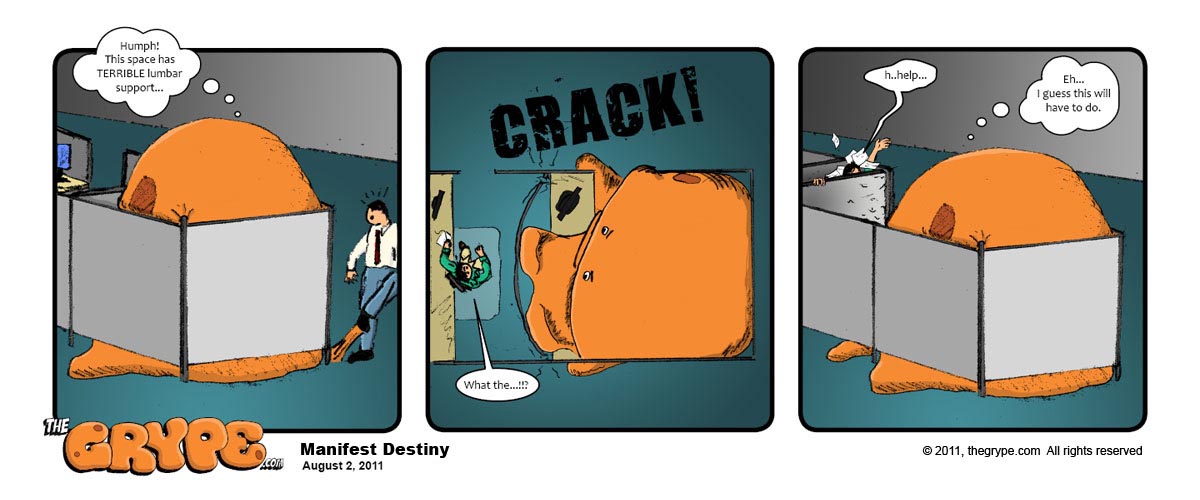The holy grail of corporate icons is “efficient productivity.” Nothing influences the attainment of that goal— either positively or negatively— as does the interpersonal climate of the work space itself. No factor is as conducive to serene corporate bliss as is cooperation in the workplace.
Why is that? Simply because no one (with the possible exception of Reality TV Producers or the Italian paparazzi) enjoys working in the social equivalent of a war zone. Remember: most of us were forced to endure 12 grades of compulsory public school in the company of other kids from whom there was no escape, during the most important emotional growth period of our lives: childhood and adolescence. We learned our most basic social skills through endlessly-repetitive games of “dodge the incoming missile,” both on the playground tarmac and amidst rows of gum-encrusted desks and assigned seating. And somehow we survived hallways crowded with roving bands of socially-maladjusted bullies, each self-consciously striving to disguise their own fear of rejection by dishing out plentiful helpings of abuse behind the collective back of the otherwise-distracted faculty, ruthlessly culling the weakest of the classroom herd by shunning them into a near-catatonic state of rejection on a daily basis.
We’ve been there, man. We survived that hell to become adults with the right to choose, for the most part, what company we keep and why. We clung tenaciously to the landing skid of the last chopper out of the scholastic combat zone, and we ain’t NEVER going back to the bush.
For those of you who avoided the pine-scented purgatory of the public school system but endured long years of dogmatic religious school or militaristic private school, the social experience was much the same (with a few lovely additions such as mandatory prayer and ugly uniforms). For any out there who were home schooled: trust me, you may have dodged the bullet of public social castigation, but you missed out on some vitally important training in noogie avoidance, pep rally personal space defense, and advanced rumor management; skills which come in quite handy in any corporate environment.
During the crazed Yuppie corporate mania of the mid-1980’s it became fashionable in American business circles to adopt a pseudo-militaristic philosophy intended to turn the tide against more-efficiently-managed foreign competitors. War was declared. Yellow power ties were replaced with blood red ones, and every wannabe killer executive could be seen squinting through the thin, filmy reading light of late-night airline red-eye flights, trying to make sense of Sun Tzu’s The Art of War: Corporate Edition.
Around this time a rather-Darwinian practice informally-known as “Bunkhouse Management” came into vogue among business management circles, wreaking havoc on sensible and rational corporate organizations throughout the American industrial landscape.
It functions thusly: The Ranch Owner (corporate CEO), seeking efficient leadership and management over his Cowboys (employees), locks them all in the Bunkhouse (workplace) and refuses to interfere in the ensuing fracas. When the sounds of combat end, the Ranch Owner opens the door. Whichever candidate is still standing is then given the job of Foreman (manager) over the rest, and—through some strange interpersonal misinterpretation of “manifest destiny,” or something—is expected to be the divinely-anointed candidate to manage them henceforth.
Logical? Only at the most superficial, bumper-sticker-slogan level. It turns out that in this weird brand of corporate gladiatorial combat, the winning candidate is NOT necessarily the best manager in the lot. In fact, the winner of these intracorporate slugfests is usually the guy with the best right hook, or (more likely) the guy with the sneakiest assortment of dirty tricks at his disposal. Natural talent at efficient management practices does NOT automatically translate well into a corporate game of dodgeball. Unless the CEO is looking for the biggest, meanest jerk to terrorize his employees into disgruntled compliance. If so, then the Bunkhouse approach works every time.
Contrary to the prevailing viewpoint of certain large-scale employers, employees are, in actuality, people. No one likes to work anywhere if the experience is like being trapped on some competitive game show. Office wargames are a distraction, and usually a waste of time. Forward-thinking corporate execs should adopt this as their mantra: “unhappy workers do lousy work.” And dedicate themselves to facilitating a more pleasant, productive environment. Free cookies in the break room are a good start, BTW.


